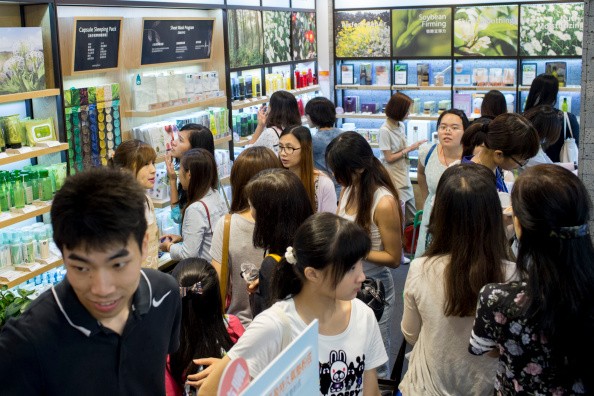Several companies selling imported cosmetics and skincare products, especially foreign brands, are confused about the Chinese government's requirements to have their products tested on animals.
According to a CNBC report, China requires cosmetics companies to submit their products to be tested in government labs before they can be approved for sale to Chinese consumers.
According to Euromonitor, the companies are faced with either submitting their products to the testing or losing access to China's cosmetics market, which was worth $29 billion last year.
The report said that the regulation covers all firms, including major foreign brands such as Estee Lauder, L'Oreal, Shiseido and Procter & Gamble.
Although most of these companies have not commented on the regulation, some companies stated online that they do not conduct animal testing and said that exceptions can be made.
Estee Lauder said in a statement on its website that it "does not test on animals and we never ask others to do so on our behalf. If a regulatory body demands it for its safety or regulatory assessment, an exception can be made."
Kathy Guillermo, senior vice president of People for the Ethical Treatment of Animals, said that based on their 2013 study, it is estimated that about 300,000 animals were used by companies testing products as a result of China's mandatory regulations. She said that one of the tests resulted in the death of an animal.
Experts said that China is not familiar with alternative ways to test the safety of beauty products such as using 3-D tissue models.
"They're just completely behind the curve in learning about the new science," Erin Hill, president of U.S.-based Institute of In Vitro Sciences (IIVS), said.
Hill is now helping the Chinese government by training scientists in new methods. IIVS has also partnered with some companies, including foreign brands in China, on how to use non-animal testing procedures.
But last year, the government accepted the data collected using non-animal test method called the 3T3 phototoxicity assay, a procedure that determines the safety of a chemical after it has been exposed to light. The government has not declared if the test is now in use.
However, animal testing requirements can now be waived in some provinces where products like soap and lotion are locally manufactured.
L'Oreal said on its website that it has taken advantage of this non-animal testing method on their shampoo and body wash.
Because animal testing has been banned in some countries such as Australia, India, Israel and those in Europe, China is being pressured to adopt the methods. The U.S. has long ceased from using the method in its standard practice.
In addition, Chinese firms selling beauty products, especially in countries that do not allow animal testing, may have to submit their products to non-animal methods to ensure their safety.



























